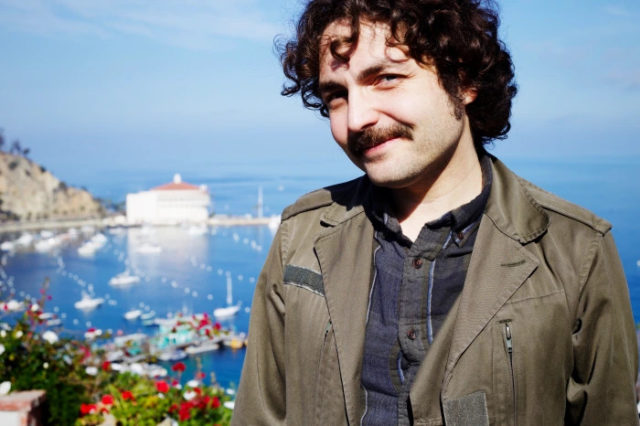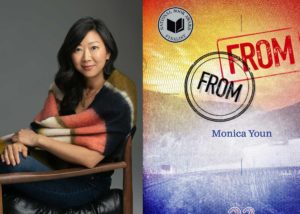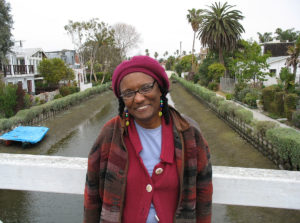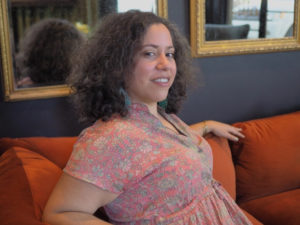This post was updated Feb. 25 at 8:41 p.m.
Challenging the boundaries of language and time, Boris Dralyuk is using poetry to merge the past and present.
The alumnus was featured in the Hammer Museum’s Poetry Series on Feb. 22. Dralyuk said his style is conversational, traditional in form, and it thematically attempts to connect with the history and past residents of the places he lives in. To emphasize this, he said his most recent poetry book, “My Hollywood and Other Poems,” includes his impressions of growing up in Hollywood as it evolved into a modern city.
[Related: Monica Youn examines US history of Asian erasure in Hammer Museum Poetry Series]
“I think I felt the need, as I’m sure many poets do, to make the momentary or the fleeting feel permanent,” Dralyuk said. “Things that I felt were too good to let be forgotten or to let die out or to vanish – I wanted to preserve them.”
In addition to writing poetry, Dralyuk is also an award-winning translator. He speaks Russian, Ukrainian, a bit of Polish and French and compiles anthologies of work from other languages. He said translation is his passion, specifically translating poetry. His understanding of other languages has instilled the importance of traditional, metrical poetry in a world that is growing to embrace free verse more, he said.
Sasha Razor, a lecturer at UC Santa Barbara and graduate school classmate of Dralyuk, said Dralyuk’s work as a translator has given a voice to the anthropological and cultural experiences of Los Angeles residents that could have otherwise disappeared. Stephen Yenser, a former professor of Dralyuk’s at UCLA, added that Dralyuk is highly informed on the topic of Russian presence in West Hollywood, and his poems reflect that distinctive experience. Razor said Dralyuk is able to connect the insight of Slavic immigrants to the rest of the world through his poems.
“Boris is a deep researcher, and a lot of his work dwells on archival research that several of us have been carrying out in the city,” Razor said. “By writing and crafting his poems, he gives voice to the characters in real life, people who are long gone.”
Dralyuk said through recognizing that society can be organized in many different ways, he can weave themes of immigration and worldliness into his poems. He added that instead of comparing life in different countries to each other, he tries to connect them and give them a platform to display similarities. By doing this, he said he creates a permanent space for these ideas to exist and escape the disappearance of time.
“I feel I’m creating something for the ages,” Dralyuk said. “Even if my work is completely forgotten in two days’ time, I still feel that in order to create it, I have to feel that I’m doing something for the future – creating something permanent.”
Currently working on putting together a new poetry collection, Dralyuk said a poem’s gestation period can be anywhere from a month to four years. This collection will feature homages to past people, places and events that are significant to Dralyuk. This is an important pattern in his reading and writing, as he said he takes large influence from Gwendolyn Brooks and Donald Justice, who also write about cities in a nostalgic tone by emphasizing the passing of time.
“That (theme) could mean profiles and verse of film stars of yesteryear, or it could mean very abstract poems about a broken clock or a cocktail, but they all have a sense of time passing in them or a disconnect between the past and the present,” Dralyuk said.
[Related: Q&A: Author and poet Xochitl-Julisa Bermejo discusses verse as a Chicana]
Because of the profound impact the UCLA professors had on him, Dralyuk said his years at UCLA were formative both in his translation work and his poetry work. Although he was not a creative writing student, he said he was able to take creative writing workshops with esteemed members of their fields and found the resources to polish up his work and combine his passions for poetry and translation.
“I hope that my poems have an effect on readers that is similar to the effect that my favorite poems have on me,” Dralyuk said. “They force me to stop and think and look more carefully at the world around me, and they reveal to me beauty where I hadn’t expected to find it.”






Comments are closed.